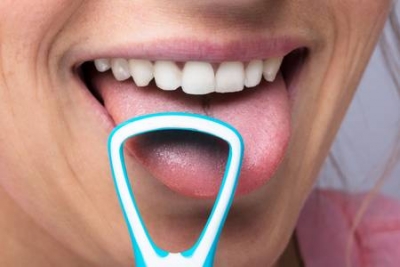
Struggling with bad breath? You’re not alone.
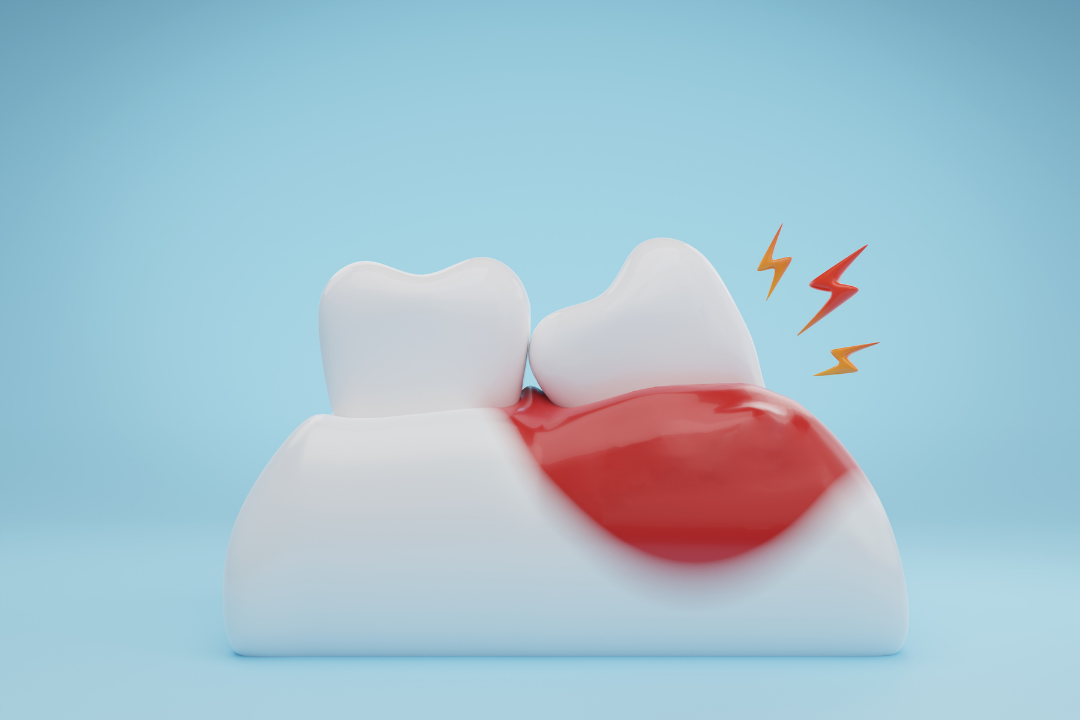
If you have gum disease, you may already be experiencing inflammation or infection of the gums.
This can range from mild (gingivitis) to severe (periodontitis). If left untreated for a long period, you may risk losing your teeth and facing other serious health problems.
After all, our gums are the foundation of holding our teeth together. Therefore, taking good care of our gums is very important.
The first few signs of gum disease often appear on the gums as red, swollen or tender.
You might also notice symptoms like:
These symptoms indicate the need for immediate dental care to prevent further health complications down the road and protect your gum health.
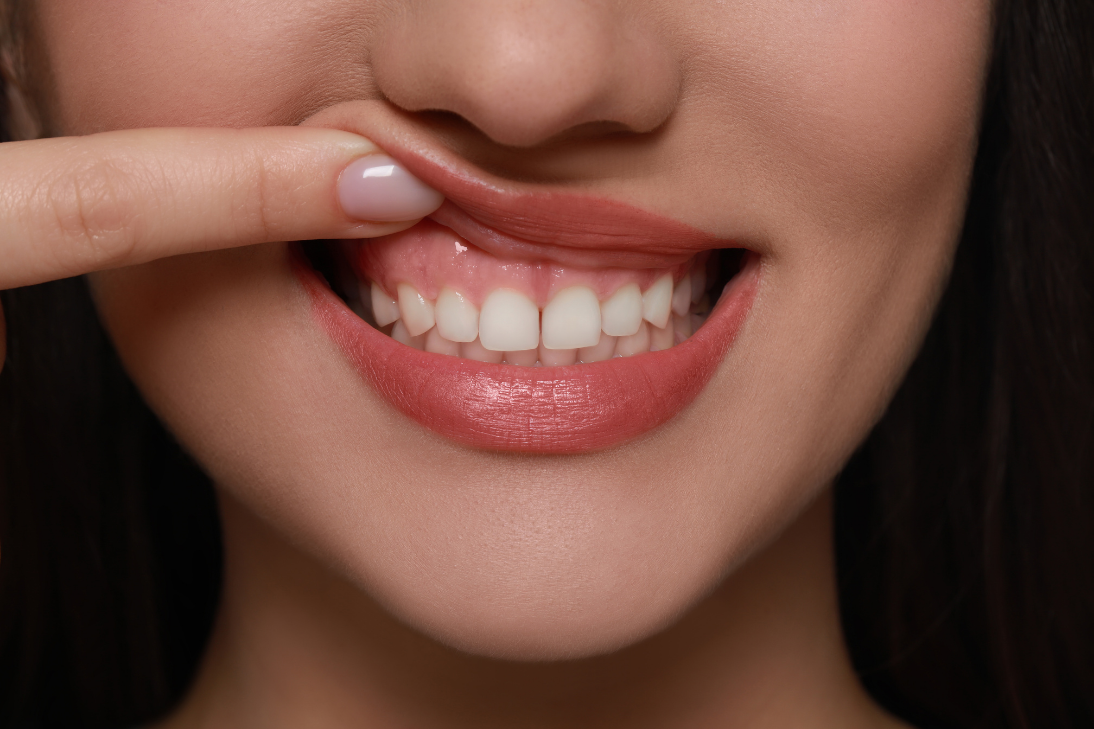
Gum disease doesn’t just happen overnight, it’s often the result of several factors working together. From everyday habits to underlying health issues, many internal and external factors can put your gums at risk.
Here’s a breakdown of common causes and how they may impact your gum health:
| Plausible causes of gum disease | How it affects your gums |
| Plaque and poor oral hygiene | Due to insufficient brushing and flossing, plaque buildup may happen. If not removed, the plaque can harden into tartar, irritating your gums and leading to infection. |
| Lifestyle factors | Smoking, high stress levels and poor dietary habits can wear down your gum health, making them susceptible to gum infection and disease. |
| Health conditions | Diabetes and pregnancy may worsen gum disease due to high blood sugar, which increases the risk of gum infections. |
| Genetics | Even with good oral hygiene, a family history of gum disease can increase the likelihood of developing it. |
| Hormonal changes | People who are going through puberty, pregnancy or menopause can make gums more sensitive and prone to gum diseases. |
| Medications | Certain medications with side effects of dry mouth can reduce saliva flow, increasing the risk of gum disease. |
| Immune system issues | Patients with HIV/AIDS or going through cancer treatments can weaken their body’s immune system, making it harder to fight gum infections. |
| Teeth grinding (Bruxism) | Grinding or clenching teeth can place excessive pressure on the gums, contributing to gum recession and damage. |
If you have gum disease or suspect that you may have one, take note of these factors as mentioned above as they further emphasise the need for regular dental check-ups and personalised advice for gum disease prevention and management.
Gum disease is not just a dental concern, it can also increase the risk of systemic diseases. This means other parts of your body/organs that may contribute to heart diseases, diabetes complications and respiratory issues. In addition, gum disease can also impact the quality of your everyday life.
Health Risks
Impact on Daily Life

There are a great deal of things you can do to prevent further damage to your teeth and gums, especially when you are proactive in addressing gum health early on.
The best method to prevent gum disease combines proper oral hygiene habits, regular dental visits and lifestyle changes.
These tips can help you keep your gums healthy and prevent gum disease from worsening.
Regarding gum treatments, this may vary depending on the severity of the disease from scaling and root planing (deep cleaning) to more advanced periodontal therapies. Timely intervention is crucial to avoid tooth loss and other complications.
To prevent further progression of gum disease, ensure that you consult a dental professional regularly for personalised advice and appropriate treatment options tailored to your needs.
If you notice symptoms like red, swollen, or bleeding gums, or if you experience bad breath or loose teeth, it’s important to take action.
These could be early signs of gum disease, and addressing them promptly can help prevent more serious complications down the line.
With proper oral hygiene, regular dental visits, and professional intervention as needed, it is possible to preserve healthy gums and a lifetime of happy smiles.
What are the main causes of gum disease?
Plaque build-up, poor oral hygiene and certain lifestyle habits such as dietary choices and smoking are the most common reasons for the initial stages of gum disease. If you don’t brush and floss regularly, plaque can build up, irritating your gums and causing infection.
Can gum disease be reversed?
In the beginning stages, gum disease like gingivitis can be reversed with proper oral care, including regular brushing, flossing, and cleanings. Once it has progressed to periodontitis though, it can only be controlled and treated and not completely reversed.
What are the signs and symptoms of gum disease?
Look out for red, swollen, bleeding or receding gums, persistent bad breath and loose teeth. Realising one of these symptoms means that seeking dental care is a must to ensure that further teeth damage is avoided.
How can I prevent gum disease?
We recommend brushing your teeth twice a day with fluoride toothpaste, flossing daily and seeing your dentist regularly for check-ups and cleanings. Eating a healthy diet and not smoking also help maintain healthy gums.
When should I see a dentist about gum disease?
If you see any early signs of gum disease, including bleeding gums and persistent bad breath, then schedule a dental visit as soon as possible. As soon as you get onto the problem, the easier it is to stop it from escalating.
Author Summary – Dr Chitra Rao

Dr. Chitra Rao has over a decade of experience in dentistry, specifically in the field of cosmetic and orthodontic treatments. Dedicated to achieving optimal results, she takes a detailed and personalised approach to creating beautiful, confident smiles for her patients. Outside of dentistry, Dr. Chitra enjoys staying active, traveling, and spending time with her family.

Struggling with bad breath? You’re not alone.
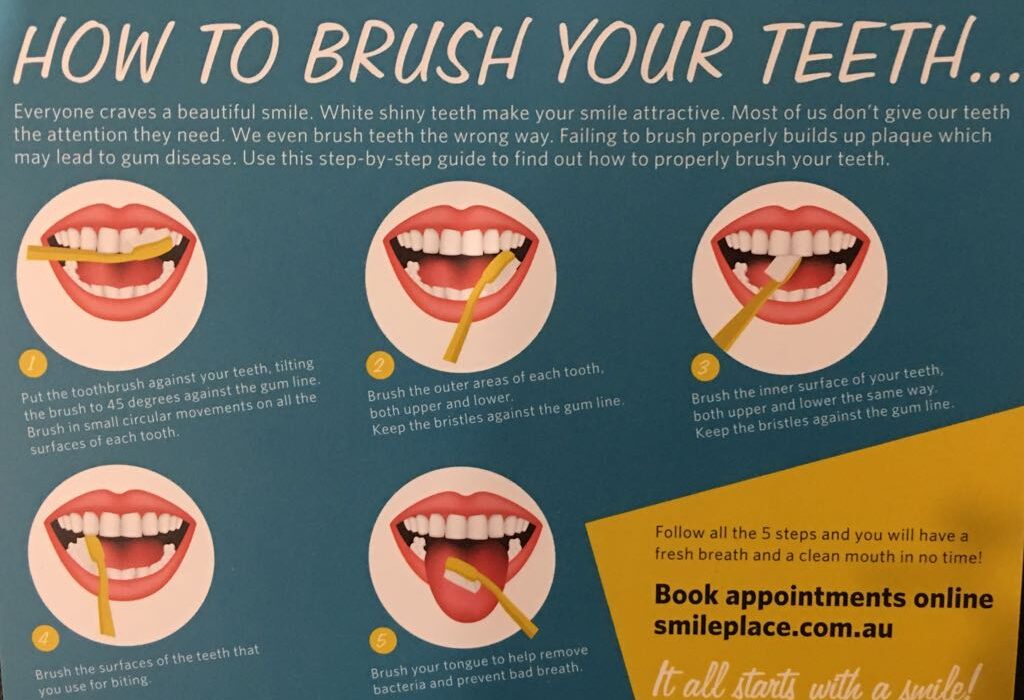
Keep it clean, keep it bright with these simple tips.
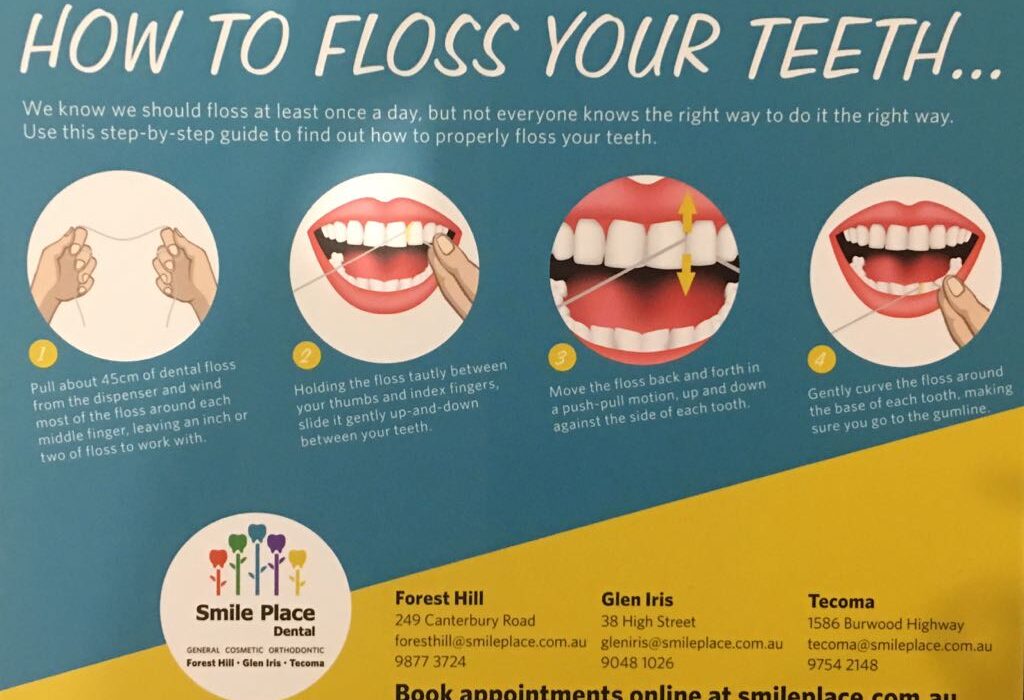
Do you brush twice a day, use a mouthwash, and still struggle with bad breath or surprise cavities? If so, the problem may be caused by inconsistent flossing. Most people skip flossing and those who do floss, often don’t do it right, leaving behind plaque and food debris. The good news? Flossing properly takes just […]